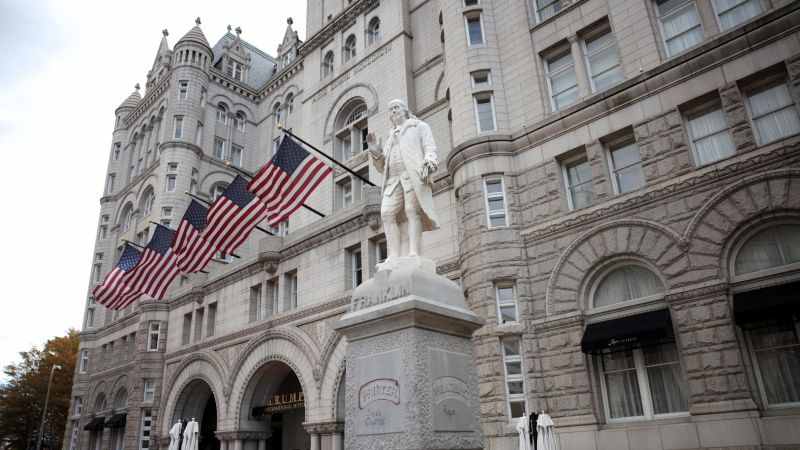The Supreme Court granted a request from the Biden administration to review a federal appeals court decision that allows for a handful of members of Congress to sue a government agency for records related to a Washington, DC, hotel once partly owned by former President Donald Trump – even if they don’t have enough votes to issue a subpoena.
The case raises questions about when members of Congress – and not a full committee – have the legal right to sue an executive agency for documents under a specific federal law, Section 2954.
While most of the documents related to the Trump hotel deal have already been turned over, the ongoing court dispute will resolve whether challenges brought by lawmakers in the minority can go forward in future cases.
The Biden administration argued that if the lower court ruling is allowed to stand, it will harm the independence of the Executive Branch, and turn what has always been a negotiation process between the branches of government into immediate litigation.
Often referred to as the “seven-member rule,” it authorizes seven or more members (less than a majority) of House or Senate oversight committees to request and to receive information from government agencies.
The question before the Supreme Court is whether the members have the legal right or “standing” to sue for non-compliance under the law. A federal appeals court held that they did.
The law is distinct from Congress’ institutional authority to request or subpoena documents and witnesses, which requires formal authorization from Congress or a committee.
The case will be heard next fall.
Back in 2016, members of the Democratic minority of the House Oversight Committee began to scrutinize a 2013 agreement between the General Services Administration (GSA) and a company owned partly by Trump. As a part of the agreement, the GSA had leased the Old Post Office building in Washington, DC, to the company so it could convert it into a hotel. The lease agreement explicitly barred any federal or District of Columbia elected official from participating and benefiting from the lease.
The members felt the lease raised issues including potential conflict of interest and asked for the materials under Section 2954. The GSA declined the request, but announced after the litigation began that it would construe the requests as a Freedom of Information Act request and turned over most of the documents withholding some under privilege. The members sued for the documents that had been deemed privileged, arguing that the GSA had violated 2954.
The Justice Department moved to dismiss, arguing that the members of Congress did not have the legal right to bring the lawsuit.
In court papers, Solicitor General Elizabeth Prelogar said that in only two other cases in the history of Section 2954, a law enacted in 1928, have members of congress tried to enforce the law through litigation.
“Although Section 2954 directs executive agencies to furnish information requested by specified congressional committees or groups of their members, it does not provide in terms that Members have a legal right to receive the information,” she told the justices.
But David C. Vladeck , a lawyer for the lawmakers, said the US Supreme Court should stay out of the dispute. He said that in crafting 2954, Congress aimed not only to bestow members of the Oversight Committee with the power to request information from executive agencies, but also to ensure that minority members were able to demand the information even if their majority colleagues did not wish to participate.
This story has been updated with additional details.
Read the full article here
